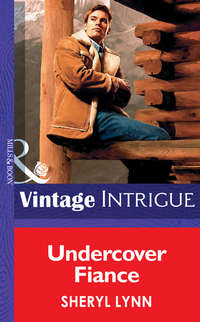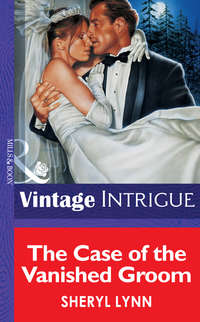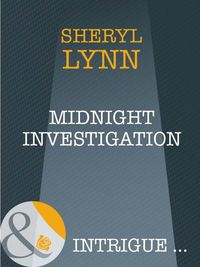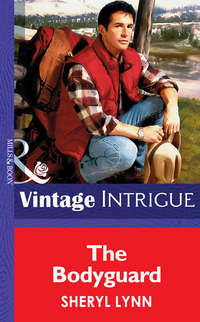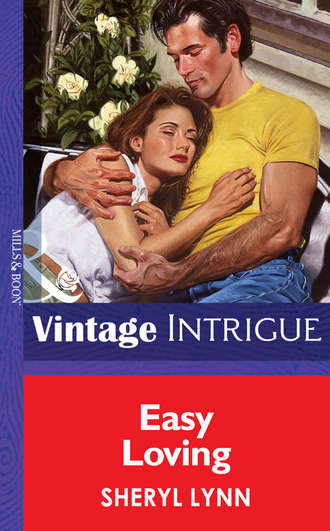
Полная версия
Easy Loving
“If we put this together, this could make your career and set you up for life. You could end up being the hottest children’s book illustrator of the century. Of two centuries! You’ll win a Caldecott.”
“Twenty books?”
“After Doc Halladay saw those mock-ups you did using photographs of him along with paintings, he flipped. As far as he’s concerned, you’re the second coming of Michelangelo.”
“How much money are they talking?”
“A cool million. Of course, that’s a five-year commitment, and we’re still squabbling about royalties, but it’s a very nice package.”
Catherine had to take several deep breaths to calm her fluttering belly.
“The contract proposal needs a Rosetta stone to decipher it. I’m overnighting you an outline of the terms and payouts. It looks complicated because it is complicated, but try not to be intimidated. I’ll have the whole thing vetted by an attorney before anything gets signed.”
Catherine loved her work, which combined her two great passions—art and science. In college, believing there was no future in fine art, she’d earned a biology degree with the goal of going to veterinary school. Then a friend had asked her to illustrate a children’s story she was trying to sell. The publisher had rejected the story, but asked Catherine if she’d submit more illustrations. Her career had been born.
After dozens of projects, she still loathed contract negotiations. She didn’t understand the fine print. The money terms were convoluted with the publisher paying out in bits and pieces based upon schedules apparently created by a necromancer scrying moon signs in springwater.
“They’re asking impossible deadlines, too,” Margaret said.
“I can do impossible. I live for impossible.”
“I know, sweetie. So don’t do something stupid like get married and run off to Tahiti to paint flowers on black velvet.”
“Yes, ma’am.”
Margaret ended the conversation with details about the contract. Catherine tried very hard to keep her excitement under control. Contract negotiations could fall apart at any stage, and nothing was certain until everyone signed the paperwork.
After she hung up, she clasped her hands and danced around the studio. “Doc Halladay loves my work,” she sang. “I’ll be famous—”
Oscar and Bent lifted their narrow heads and looked toward the front of the house. Greyhounds, Catherine had discovered, were the perfect house pets. They were tidy, quiet, dignified and loved to lounge around on the furniture. They rarely barked. She’d set up an old sofa for them in her studio where they spent their days with their long legs sprawled, luxuriating in comfort.
“Is somebody coming?” she asked. “Normal dogs bark, you know.”
She heard an engine, throaty, powerful, unmistakable—a Harley-Davidson motorcycle. The noise increased, approaching the house up the long, curved driveway through the pine trees. Wondering who in the world she knew who owned a Harley, she stepped out onto the deck. She blinked in the bright sunshine. Oscar and Bent joined her. They stretched their long bodies and yawned mightily.
The motorcycle appeared, a modern-day destrier of sleek black shine and glittering chrome. The rider wore a black, full-face helmet. He guided the motorcycle around potholes and ruts in the wide, but ill-maintained driveway. The bike’s rear tire dropped and bounced in a pothole, and Catherine winced. Having the driveway graded and paved was her next home-improvement project.
The rider wheeled the bike around the circular drive to park before the deck. He was a big man, his suntanned arms roped with muscle. She glanced at the dogs, now flanking her feet. They weighed eighty pounds apiece and could run down a rabbit without breathing hard, but protect her?
The rider cut off the engine. The sudden silence heightened her awareness about her seclusion, with the pine forest shielding her from the road and neighbors. She watched the man dismount. With his back to her he worked off the helmet. His hair, thick and sooty black, gleamed with bluish lights. Despite her nervousness, her artist’s eye delighted in his powerful shoulders and the sinewy curves of his back.
He turned around.
He smiled and his dark eyes glittered like obsidian.
“Hello, Tink,” he said. “Long time, no see.”
Her brain froze. All sensations centered square in her chest where emotions long buried burst from their shell. For years she’d wondered what she would say to Easy Martel if she ever ran into him. She’d wondered what she would do, how she would act, what she might feel.
He was bigger than she remembered, his youthful slenderness grown into lean, broad-shouldered maturity. Once smooth olive cheeks now sported a definite beard shadow. He wore his black hair short rather than letting it hang shaggily down his neck. The smile remained the same, however, wry yet warm, completely focused, while those dark, dark eyes melded into hers.
Heart melting. Soul searing.
“Don’t you remember me?” he asked. “It’s me, Easy—”
She whipped about, raced into the house, slammed and locked the door.
Chapter Two
Easy Martel slid a hand around the back of his neck. He frowned at the half-glass door where curtains swayed gently. He stood chest level to the deck flooring, eye to eye with a pair of dogs who poked their narrow heads between the railing. They watched him with quiet curiosity. Despite the dogs’ whip-thinness, they were large animals.
“Nice doggies.” He sidled to the steps. Alert for a growl or other threat, he climbed the steps slowly. “Good doggies.” He offered a hand for their inspection.
As one, the dogs turned and walked around the corner of the house. The clicking of their toenails on the decking faded in the distance.
Wary that this might be some canine trick, Easy hesitated. Maybe Catherine had trained her dogs in ninja tactics. He waited a few moments to see if the animals returned. When they didn’t, he knocked on the door. “I didn’t mean to startle you. It’s me, Easy Martel. Wasson High School?”
He considered she may have forgotten him, but she’d been as madly in love with him as he’d been with her. She’d never forget him. More likely she still had that weird habit of running off when flustered. Smiling in fond remembrance, he knocked again.
The door opened an inch. He glimpsed a hostile eye glaring back at him. Memories rushed in with tidal-wave force, sweeping him back twelve years. Catherine’s eyes had always fascinated him with their jewel-rich color and expressiveness. In high school she’d walked hunched over with her eyes downcast, her messy hair falling over her face. Despite her being awkward, pudgy and painfully shy, he’d looked into those sapphire depths and known she was beautiful. Cursing his own cowardice, he regretted every second they’d missed in the past twelve years.
“What are you doing here?” Her icy words startled him.
“Don’t you remember—”
“I know exactly who you are. Now go away.”
He retreated a step and rubbed his chin, thinking. Their breakup had been messy and acrimonious. That, however, had been when they were only kids. If he remembered correctly, she’d dumped him. “It’s been a long time, Tink. Are you still mad at me?”
She threw the door wide. Chin up, feet spread, shoulders back, she faced him squarely. She wore a cropped T-shirt that clung to the rounded rise of her breasts and revealed an alluring inch of flat belly. Denim shorts showed off a pair of shapely legs. Barefoot, she sported a thin gold chain around one slim ankle. He leaned forward for a better look. Gone were the baggy black clothes and self-conscious posture.
The guys in high school who used to call her a dog ought to see her now. Their eyeballs would pop out of their skulls.
“You’ve got some nerve. How did you find me?”
Suspicion prickled up and down his spine. Her attitude transcended hostility—she hated his guts. “I looked you up.”
“How? I’m not listed in the phone book.”
He accepted that insurance cheats, disability frauds, embezzlers and adulterers took exception to his snooping around. But an old girlfriend?
“I looked you up in the public records,” he said. “Your property is listed.” He tried a smile and a compliment. “You look great. You got yourself in shape. Took off the baby fat.”
Her mouth fell open. Color drained from her cheeks. She gasped.
Knowing he’d said something wrong, he backed up another step. “What?”
“You are so heartless, so cruel. You haven’t changed a bit, Earl Zebulon Martel. Not one tiny bit!”
Call “Ripley’s Believe It or Not,” he’d found a woman who didn’t like compliments about losing weight. He showed his palms in appeasement. “I mean you look nice. Your hair and everything. It’s pretty. You’re pretty.”
“That gives you the right to make cracks about the baby?”
Now he was so lost he may as well be out of state. “You have a baby?”
She charged out of the doorway like a grizzly bursting from the brush. Easy scooted backward until he hit the deck railing and could go no farther. She came close enough for him to smell an intriguing mixture of paint and vanilla. Each time she waggled a finger at his face, scent wafted to his nose. Memories teased and distracted him—her scent had always intoxicated him.
“That stupid, dumb jock act worked in high school, but don’t you dare pull it now. You know damn well I had a baby!”
His cheek’muscles twitched. Every inner sense screamed danger, but as yet he couldn’t quite identify the source. Cautiously he tried, “Congratulations?”
“Get off my property or I’m calling the police.”
He half turned in automatic response, but stopped. He replayed in his head the confrontation thus far. She recognized him, she despised him, the comment about baby fat enraged her, and she accused him of knowing she’d had a baby. Logic said, since they hadn’t seen each other in twelve years, then the only way he could have possibly known about a baby…
“You had a baby?” Sensing how she would reply, his words came softly, slowly. “My baby?”
She flipped her left hand. “Knock up your girlfriend.” She flipped open her right. “She has a baby. It’s biology, you idiot.”
Jeffrey Livman and John Tupper faded into insignificance. Memories built, the details growing clear. It had been the night of the winter festival right before Christmas break. At the dance he’d been horsing around with his friends; they began ragging him about Catherine. His buddies hadn’t understood why Easy loved her. She wasn’t popular, she didn’t know how to dress, she made straight As and she wasn’t cheerleader pretty. At eighteen, he’d been immature enough to join his friends in making fun of her. She’d blown up at him, telling him she never wanted to see him again. During Christmas break, she refused to see him or return his phone calls. When school resumed, she’d cut him dead, pretending he didn’t exist when they passed in the halls.
“You never told me you were pregnant.” As the implication sank in, his temper rose. He’d loved her—maybe he still did. They’d planned a future together and she hid a baby? “You never said one word.”
She clamped her arms over her chest. Her eyes blazed in heated challenge. “That’s why you dropped out of school and ran away to join the army.”
“I didn’t drop out. I had enough credits to graduate midterm. You’re the one who ran away. When I came back from basic training, you were gone. You dumped me,”
“You were a creep. And irresponsible.”
“You said you never wanted to see me again. You wouldn’t talk to me.”
“And give you a chance to not just call me a fat cow, but a fat, pregnant cow? You were cruel, Easy.”
She had him there. He hung his head. “I wrote you about a hundred letters from basic training. I thought joining the army would make you miss me and—” he shrugged “—maybe scared I’d be killed. I was trying to be a hero. But you didn’t answer my letters. You wouldn’t take my calls. When I went to your house, your parents wouldn’t let me see you. Nobody knew what happened to you.”
Some of the fire drained from her face and her rigid shoulders relaxed. Her brow furrowed in an expression of uncertainty. “My parents sent me to Arizona to live with my grandmother. They couldn’t stand to have me around, causing talk. I never got any letters.”
Easy remembered Catherine’s parents. Stiff, unsmiling people who never spoke to him and rarely said a word to their daughter. Mr. St. Clair was a hotshot lawyer—Mr. Perfect with plenty of big bucks and a high society lifestyle. Easy wondered how many of his rich clients and golfing buddies knew St. Clair had a vicious temper and a habit of smacking his daughter around. A lump lodged in his throat.
“I didn’t know, Catherine. I swear.”
She turned her face away, gazing distantly. A light breeze ruffled the ends of her hair. He remembered its softness and how she used to swing it in his face, tickling him.
“I tried to tell you at the dance. Do you remember? But your friends wouldn’t leave us alone and then you said all those mean things and you were laughing at me. I was so scared, so ashamed, and when you laughed at me I couldn’t face you anymore.”
He passed a hand over his eyes. “I’m sorry. I am so sorry.”
She gave herself a shake. Lifting her chin, her expression now cool and unreadable, she met his gaze. Those deep blue depths held a coldness Easy had never suspected she could reach. She inhaled deeply and the corners of her mouth tipped in a strained smile. “It was a long time ago. I’m over it now.”
And he was the Pillsbury Doughboy’s evil twin. “So where’s the—”
“Excuse me,” she interrupted. “As fun as old home week could be, I’m sure you understand why I don’t feel like strolling down memory lane. I’d like you to leave. I’d appreciate it if you didn’t contact me anymore.”
“Where’s the kid, Catherine?” He looked about, seeking bicycles, roller skates or toys. He couldn’t do a thing about what happened twelve years ago, nor could he make up for the time they’d lost. Despite her accusations, though, he’d never shirked a responsibility in his life.
“There is no kid.”
Horrified, he pushed away from the railing. “The baby died?”
“I put her up for adoption.” Her rounded chin lifted another notch, defiant. “It was a girl. Six pounds, twelve ounces, perfectly healthy. She had hair. Black hair, just like yours. I signed the papers when she was twenty-four hours old. I held her once.” Her chin trembled and her voice cracked. Unfallen tears glazed her eyes. “I named her Elizabeth, after your mom, because she was always so nice to me. On the birth certificate I listed the father as unknown.”
He closed his eyes, trying to picture Catherine in labor, little more than a baby herself—alone, banished from home, deserted. He saw instead her face when they’d made love, her softly curved cheeks aglow without a trace of shyness or self-consciousness. Loving her had made him a better person. He hadn’t known it then, but he knew it now. She’d never disguised her intelligence or played games or treated him with anything other than respect. He’d lived for her admiration, sought her approval, strove to measure up to her standards.
He had a child. A funny piece of information. He held it in his thoughts as if it were a strange bug he’d never seen before.
“I didn’t know,” he said. “I swear, I didn’t know.”
Her belligerence faded, leaving her face naked with pain. “Now you do. So go away. I’m not in the mood for a class reunion.” She turned for the door, reaching for the handle.
“Catherine.” He took a step toward her. “Tink. We need to talk about this.”
She shook her head. Her blond-streaked hair shone with glimmering lights. “We have nothing to discuss.”
“Wrong answer. Where’s the kid? Where does she live?”
She turned about, her expression now bemused. “How am I supposed to know?”
“You’re her mother.”
“Her mother is the woman raising her. She isn’t mine anymore, and she certainly isn’t yours.”
“I never gave up my parental rights.”
“Rights? How dare you?” She clamped her fists on her hips and leaned forward. “The only person who had any rights was Elizabeth. She had a right to be raised by adults.”
“So you gave her away like a puppy.”
Catherine flinched as if he’d slapped her. Hot color flushed her cheeks and her big eyes grew bigger. So low he barely caught the words, she said, “Giving up my baby was the hardest thing I ever had to do in my life.”
Her sorrow touched him. He clamped his mouth shut.
“I regret being irresponsible, for having sex without being old enough to know what I was doing. I regret not using birth control. I regret not being able to give her a home. But I made the right decision, and that I don’t regret. Wherever she is, she has two parents who love her.”
At least a fourth of his cases involved missing persons. Many of those clients were adoptees seeking birth parents. A few were parents seeking children they regretted giving away. He had never understood why they couldn’t leave the past alone. Now he felt a glimmer of that urgency to know.
Did his daughter hate him? Did she believe he’d discarded her like unwanted garbage?
“I can find her.” He nodded eagerly. “Give me the date she was born. The hospital, the doctor and the name of the adoption agency. We can find her.”
Catherine cocked her head. “Are you nuts?”
“I’m serious. I can do it. That’s how I—”
“Why would you want to? She has a family, a life, people who love her. We can’t pop into her life and mess things up.”
“If,” he said slowly, “I had known you were pregnant, I’d have married you. You never gave me a chance—or a choice.”
She snorted in derision. “I wouldn’t have married you. Not after what you said at the dance.”
Taken aback, he glared down his nose at her. She had changed more than her appearance. Catherine St. Clair had grown a backbone. One made of pure steel, if he were any judge. His temper flared. The more he struggled to control it, the hotter his blood boiled. “So you got even with me and threw away the kid. Why didn’t you just kill her?”
Bad words, fighting words. He regretted them as soon as they popped out of his mouth.
“Good grief!” She threw up her hands and turned her gaze to the heavens. “Ten minutes ago, you claim you didn’t even know I was pregnant. Now you want to play daddy of the year. Get lost, Easy. Just go away.” She entered the house and slammed the door. The clunk of a dead bolt sounded like a pistol shot.
Easy wavered. He hadn’t accomplished what he set out to do. He didn’t know any more about her involvement with Jeffrey Livman than when he’d arrived. He breathed hard, trying to get back to the present problem.
John Tupper had told a chilling story. After a whirlwind courtship, Roberta Tupper had married Jeffrey Livman. In the year they were married, Roberta had severed contact with her family. Six months ago Roberta had fallen from a rock formation in Garden of the Gods, and died from massive head injuries. There were no witnesses and no physical evidence of foul play. The coroner had declared Roberta’s death accidental.
Except, Roberta had been asthmatic and shunned physical activity such as hiking or rock climbing.
Except, a few weeks before her death, John Tupper had confronted his sister at her place of work, demanding to know why she refused to visit him or his family. He had come away with the impression that Roberta was terrified of her husband.
Except, Livman never notified the family of her death. Livman had Roberta’s body cremated without so much as a funeral or a memorial service. John had learned of the tragedy from the newspaper.
Except, Livman had collected on an insurance policy to the tune of five hundred thousand dollars. In John’s words: “I sell insurance. A childless woman whose husband is young, healthy and employed does not need half a million in life insurance.”
In Easy’s mind, all those excepts added up to murder.
He had hoped, because of their former relationship, Catherine would cooperate. Through her he might obtain a confession of murder, or discover some basis for John to proceed with a wrongful-death suit against his former brother-in-law.
At the moment he considered himself lucky she didn’t shoot him on sight. Stunned by how much her revelation about the baby hurt, he mounted his motorcycle and rode away.
CATHERINE RESTED with her back against the wall until the motorcycle noise faded in the distance. She breathed deeply through her mouth, her chest aching.
On wooden legs, she walked downstairs to her bedroom. From the bedside table she picked up a polished silver frame. It contained a photograph of a little girl with dark hair, dark eyes and a gap-toothed smile. Catherine had clipped the photograph from a magazine and did not know the girl’s name. Over the years, she’d changed the anonymous photographs from baby pictures to this present child.
Not for the first time, she wondered if her insistence on pretending to have a photograph of Elizabeth was a sign of insanity. A means of punishing herself for a guilt she couldn’t shake.
She accepted her action. She knew she’d done the right thing for Elizabeth. At the time, she’d been sixteen years old, little more than a baby herself. She had no right to destroy Elizabeth’s life. Still, the hurt, guilt and shame lingered.
Catherine traced the smiling child’s jawline with a fingertip. Seeing Easy again hurt most of all. The pain of learning he’d joined the army remained burned into her memory. He’d left without so much as a goodbye. He’d left her alone to deal with her pregnancy and her parents and the shame.
Closing her eyes, she remembered vividly the feel of Easy’s skin. He’d been a breathtakingly beautiful boy. She’d filled notebooks with sketches of his face and hands and the alluring musculature of his arms. Tall, slender and graceful, he’d always been ready with a joke and a laugh. A smart aleck, the class clown and captain of the football team—she’d loved him desperately.
A scratching noise startled her. The greyhounds waited at the French doors leading to the lower patio. Oscar lifted a paw and patted gently at the glass.
With a trembling hand, she opened the door for the dogs. “I can’t believe I yelled at him,” she told them. “I never yell.”
She trudged upstairs to the studio. With the shock of seeing Easy fading, she was appalled at how she’d reacted. The rage had erupted within her like a volcano lain dormant for all these years.
She glanced at the telephone. She wanted to call Jeffrey, but what could she say? She’d never told him about her high school love affair or the child she’d given up for adoption. Now that Grandma had passed away, she never talked about it at all.
As much as she longed to put the past behind her, it affected every aspect of her life. Her relationship with her parents remained strained. Although they lived in the house where she’d grown up, she saw them less than once a month. Visiting them remained a chore. She supposed she waited for them to say they were sorry for the way they had treated her.
She remained terrified of pregnancy, terrified of losing yet another child. She didn’t trust birth control devices or drugs. She couldn’t trust fate. No sex until marriage, she’d vowed, and stuck to it all these years.
She couldn’t marry anyone, or even fall in love, unless she trusted him enough to tell him about the baby. How was she supposed to tell anyone when she could not bear to speak of it?
At a worktable, she frowned at a painting for a beginning reader’s book about spiders. In painstaking detail she’d depicted hatchlings bursting from an egg sac. Babies. It occurred to her that the projects that excited her the most dealt with babies in one form or another.
She kept seeing the look of astonishment on Easy’s face. All these years she’d assuaged some of her guilt by blaming him for deserting her. She was rotten, but she always had the comfort of knowing he was more rotten.


